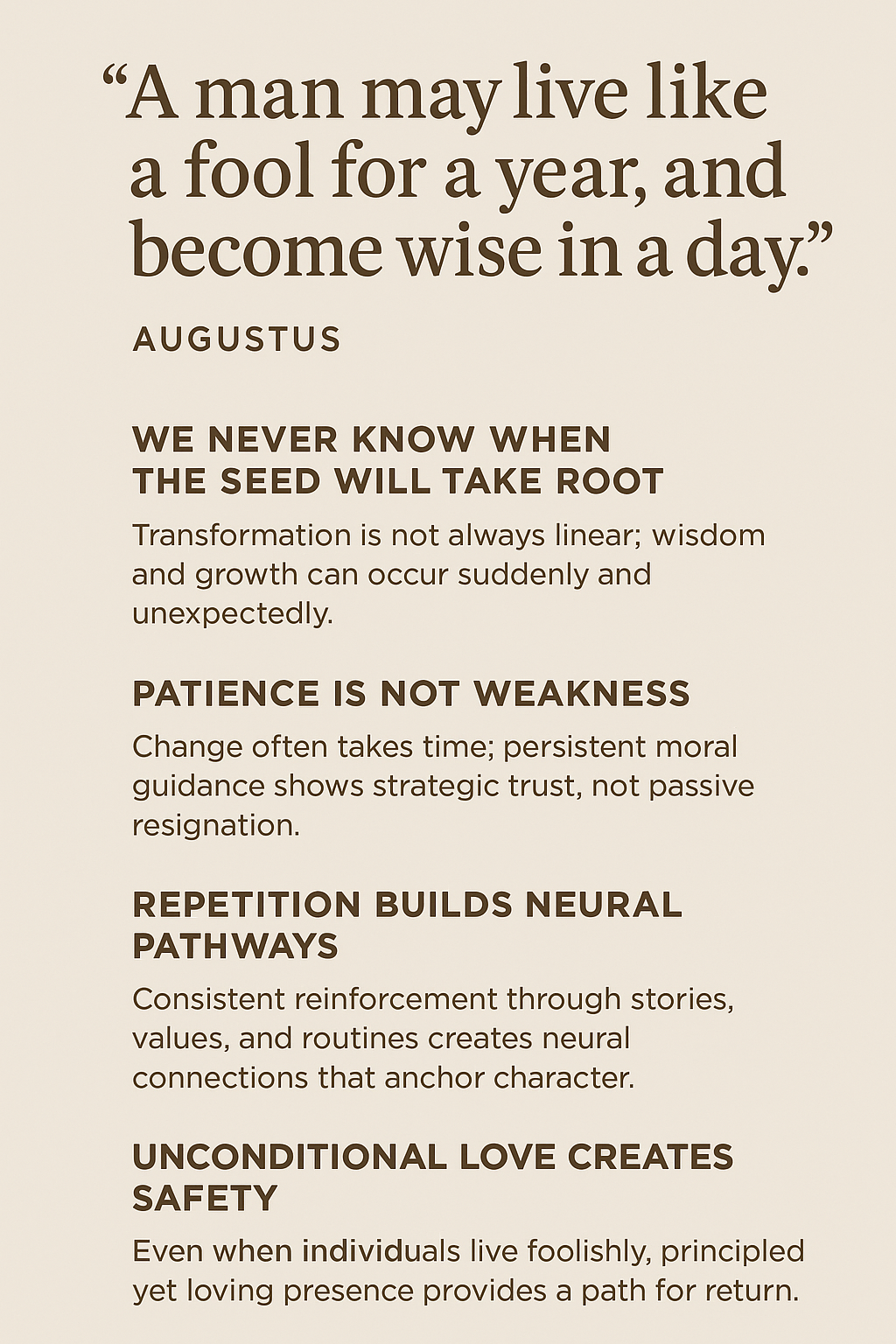“A man may live like a fool for a year, and become wise in a day.” – Augustus
This quote echoes a core insight: transformation is not always linear — it is often delayed, sudden, and surprising. Wisdom and growth don’t always follow a predictable timeline, especially in the heart of a child or the soul of a wandering adult.
What This Means for Parenting, Mentoring, and Moral Formation
We Never Know When the Seed Will Take Root
Like the parable of the sower, some seeds fall on rocky soil, some are choked by weeds, and some finally reach fertile ground — but that ground can change in a moment. A child may ignore your lessons for months or years, only to suddenly understand after a crisis, an experience, or even a single word lands differently.
Implication:
- Never stop sowing, even when it feels fruitless.
- Don’t measure your impact by their current behavior — you are planting legacy.
Patience Is Not Weakness — It’s Strategic Trust
Growth often comes after failure. Adolescents especially learn through mistakes, often rejecting wisdom at first. But when truth is offered with patience, love, and consistent moral standards, it is remembered when they are finally ready to hear it.
From the tapestry:
- This mirrors Stephen Covey’s Habit 5: “Seek first to understand, then to be understood.”
- It’s aligned with Paul Jenkins’ consulting-level parenting: influence through trust, not control.
- It honors the Hero’s Journey: the child must often descend into struggle before they rise with understanding.
Repetition is Spiritual and Neurological
- Spiritually, repetition forms identity. The Hebrews repeated the Shema daily. Christ taught in repetition. Discipleship is daily bread, not a one-time feast.
- Neurologically, repeated exposure builds mental pathways (neuroplasticity). Even if a child mocks your lessons now, they’re forming anchors they may grab when life gets stormy.
Unconditional Love Creates a Safe Return Path
Many “fools” become wise not because they were corrected harshly, but because someone loved them anyway. The Prodigal Son did not return because of punishment — he returned because he remembered his father’s house and what it represented.
Implication:
- Hold your ground in truth, but hold your arms open in love.
- Your consistent, principled presence becomes their emotional compass later.
Summary Table
| Principle | Meaning in Practice |
|---|---|
| Wisdom may come suddenly | Be patient — don’t expect instant results |
| Growth is non-linear | Expect backsliding, resistance, but don’t lose heart |
| Repetition is formation | Repeat values, stories, rituals — they build inner structure |
| Unconditional love is the net | It allows people to return with dignity and hope |
| You are not planting for now | You’re planting for the day their heart awakens |
Final Word
“Train up a child in the way he should go: and when he is old, he will not depart from it.” — Proverbs 22:6
Just because they live like a fool today doesn’t mean they will stay there. The day of wisdom may come unexpectedly — and your patience, repetition, and unconditional love will be the reason they’re ready to receive it.






